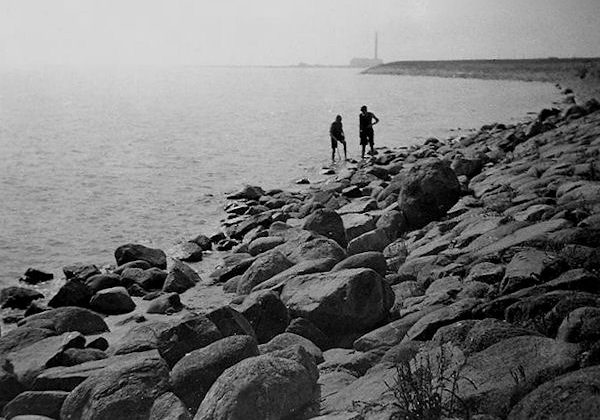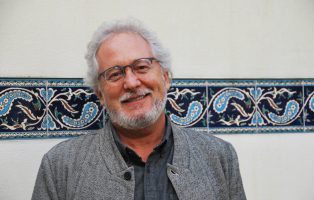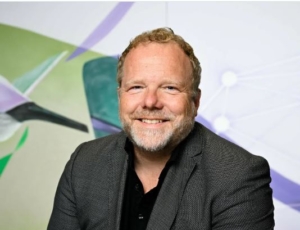You studied astrophysics, Dutch literature, history and philosophy, and you are now a poet. Just like your neighbour next to you in this corridor, neuroscientist-musician Eus van Someren, you have an interest in both art and science. What did you actually want to become when you were little?
“When I was a child, I was always drawing, writing short stories and making up songs that I sang to myself. I already wrote poems as well – I coincidentally just reread a poem that I forgot I wrote, it was a poem about a farmer, from the school’s newspaper. I think I have always wanted to write. But when I had to choose an education, I chose astrophysics. Nobody in my family made a living as an artist, and I did not know how you should go about becoming a writer. And actually, I felt I did not know enough to be able to write.”
Do you feel you know enough now?
“I think differently about this now. I have come to realise that not knowing everything, can make you very creative. That’s why, in astrophysics for example, they say the best ideas come when you are young. Your brain is free in a way. And this is also what you need while writing. It is important not to know everything.”
Can you tell us something about what you are working on at this moment?
“I am now writing a novel. It is about six characters, six voices from the interwar period, which is a very interesting period. Society is changing and there are many ethical questions being raised. In a way, the interwar period looked like our current times. Everything was very fast suddenly – you had cars and trains and telephones. I am fascinated by the literature and philosophy of the time, and many of my interests come together in this book.
So you have six characters talking to each other: physicist/chemist Marie Curie, anarchist Emma Goldman, cultural critic Menno ter Braak, the nonconformist character Jinny from Virginia Woolf’s The Waves, and wounded war veteran Andreas Pum from Joseph Roth’s Die Rebellion. And finally, philosopher Ludwig Wittgenstein.
I have just made the important decision to write about Wittgenstein instead of philosopher Henri Bergson, which was my initial plan. There are too few historical sources about Bergson because all his unpublished work has been destroyed after his death – I would have to make everything up. And I do not want to do that. That is one of the important questions I now have to answer: how much do I allow myself to fictionalize?”
What do you hope to achieve in a few months’ time, when you leave this office at the end of your fellowship?
“I expect to have a full first draft of the book. At the moment, everything is in my mind and on the computer, in separate pieces. Right now I have empty walls still. But they will soon be covered all over with notes, diagrams and stories. All the voices have to come together.”



